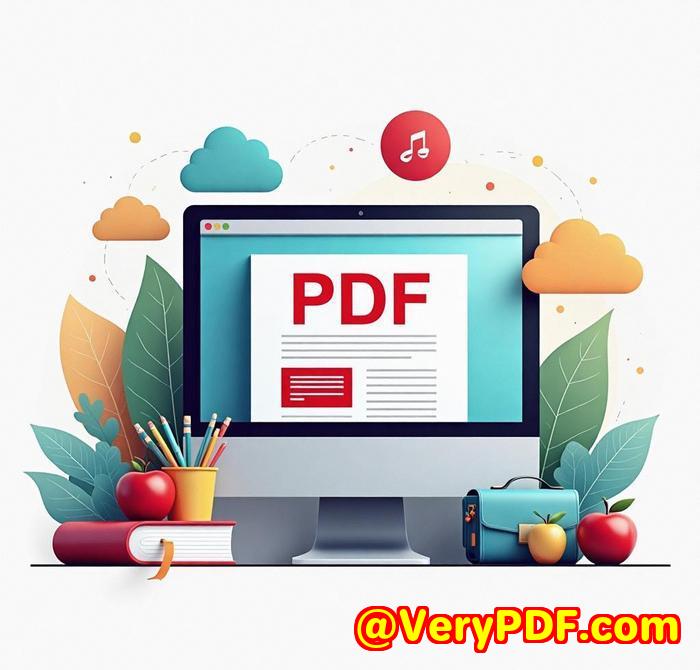Java PDF Toolkit vs Ghostscript for Linux PDF Automation Pros and Cons
Java PDF Toolkit vs Ghostscript for Linux PDF Automation: Pros and Cons
Every business has its unique PDF handling needs. Whether it's splitting, merging, or simply securing sensitive documents, a reliable PDF tool is essential for smooth workflow automation. I've worked with several PDF manipulation tools over the years, but two that stand out for Linux users are VeryUtils Java PDF Toolkit and Ghostscript. In this post, I'll break down the strengths and weaknesses of both tools based on my personal experience, so you can decide which one fits your needs.

Understanding the Tools: VeryUtils Java PDF Toolkit vs Ghostscript
Before diving into a feature-by-feature comparison, let's take a quick look at both tools.
-
VeryUtils Java PDF Toolkit (jpdfkit): This is a powerful Java-based PDF manipulation tool that works across Windows, Mac, and Linux. It's a .jar file that can be used for a range of PDF tasks like splitting, merging, encrypting, rotating, and adding watermarks. It's commonly used for server-side processing and integrates well into other software.
-
Ghostscript: On the other hand, Ghostscript is an open-source interpreter for the PostScript language and for PDF. It's often seen as a go-to tool for converting, rendering, and editing PDFs, particularly in Linux environments. It has a strong following in the developer community, especially for those looking for a no-cost solution.
Feature Comparison: What I Liked (and Didn't Like)
1. Ease of Use: VeryUtils Java PDF Toolkit
When I first started using VeryUtils Java PDF Toolkit, I was impressed by how straightforward the command-line interface was. The tool is built with developers in mind, but it doesn't require a steep learning curve. You can perform all sorts of operations like merging PDFs, rotating pages, and adding watermarks with simple commands.
For example, I needed to split a multi-page PDF into individual files, and with just one command (java -jar jpdfkit.jar testcmd.pdf burst), the job was done. The output was clean and fast. Plus, the tool supports PDF encryption and decryption, which is critical when dealing with sensitive documents.
Ghostscript, in comparison, can be a bit trickier for beginners. While it's extremely flexible, the setup and syntax can be overwhelming, especially when you want to go beyond basic functions. For instance, splitting pages in Ghostscript can require a more complex series of commands.
2. Performance: VeryUtils Java PDF Toolkit
The Java PDF Toolkit stands out in terms of performance. It's optimized for server-side use, meaning it can handle large batches of PDFs without breaking a sweat. I've used it to automate processes in my workflow, and whether it's generating PDFs from reports or merging dozens of scanned pages into a single document, it delivers quick and reliable results.
Ghostscript, however, can sometimes slow down with larger files, especially if you're working with complex PDF structures or high-resolution images. For simple tasks, it's fine, but when I needed high-speed processing or handling multiple files simultaneously, VeryUtils Java PDF Toolkit had the edge.
3. Advanced Features: VeryUtils Java PDF Toolkit
Here's where VeryUtils Java PDF Toolkit truly shines. If you need more than just basic PDF manipulation, this tool is packed with advanced features. You can:
-
Fill and flatten PDF forms: I had to work with a batch of forms for a client project, and the ability to automatically populate forms and flatten them was a lifesaver.
-
Repair corrupted PDFs: This feature is a game-changer when dealing with damaged or incomplete files. I've encountered this more often than I'd like, and knowing that I can repair those files without losing data is a huge plus.
-
PDF/A Conversion: If you need to ensure compliance with archiving standards, PDF/A conversion is a breeze with the toolkit. I've used this to prepare files for long-term storage, ensuring they meet the necessary compliance standards.
Ghostscript does have a broad range of functions, but it doesn't have the same level of out-of-the-box support for advanced tasks like form filling or PDF repairs. If you're working on anything that requires custom workflows or specific PDF standards, Java PDF Toolkit is far more specialized.
4. Support and Documentation: VeryUtils Java PDF Toolkit
The support system for VeryUtils Java PDF Toolkit is excellent. The company offers detailed documentation and a responsive support team. Whenever I had a question about a specific function, I was able to find answers quickly, either through the documentation or by reaching out for assistance.
Ghostscript's community support is decent, but because it's open-source, the documentation is often more technical and harder to follow for non-developers. If you run into issues, the community can help, but responses may take longer, and troubleshooting might be more time-consuming.
Pros and Cons: A Quick Breakdown
| Feature | VeryUtils Java PDF Toolkit | Ghostscript |
|---|---|---|
| Ease of Use | Intuitive, quick setup | Complex, steep learning curve |
| Performance | Fast, handles large files well | Slower with complex PDFs |
| Advanced Features | Rich features like form filling, PDF repair, encryption | Basic PDF manipulation |
| Support | Excellent, responsive | Community-driven, slower |
| Price | Paid | Free (open-source) |
Which One Should You Choose?
If you're working in a business or enterprise environment where you need a reliable, fast, and feature-rich PDF manipulation tool, VeryUtils Java PDF Toolkit is a no-brainer. It's perfect for automation and handling complex PDF tasks, from form filling to encryption. Plus, the tool's ability to integrate into other systems makes it ideal for developers.
On the other hand, if you're a freelancer or someone who needs basic PDF editing without spending a penny, Ghostscript might be a good fit. However, be prepared for a bit of a learning curve and slower performance on larger files.
I'd highly recommend VeryUtils Java PDF Toolkit to anyone who works with PDFs on a regular basis, especially in business automation. Its robust features, reliability, and excellent support make it a powerful tool for both simple and advanced PDF workflows.
Click here to try it out for yourself: https://veryutils.com/java-pdf-toolkit-jpdfkit
Custom Development Services by VeryUtils
If you need specialized functionality or custom development for your PDF processing, VeryUtils offers a range of services tailored to your needs. From integrating PDF manipulation tools into your existing systems to creating custom applications in Java, VeryUtils provides solutions for businesses of all sizes.
For custom PDF solutions or more information, visit VeryUtils Support Center to discuss your requirements.
FAQs
-
How can I split a PDF using VeryUtils Java PDF Toolkit?
You can split PDFs by using the
burstcommand in the command-line interface. For example:java -jar jpdfkit.jar sample_testcmd.pdf burst. -
Can I encrypt a PDF with a password using the toolkit?
Yes, VeryUtils Java PDF Toolkit allows you to encrypt PDFs with both user and owner passwords. Use the command:
java -jar jpdfkit.jar sample_verypdf.pdf output _encrypted.pdf owner_pw 123 user_pw 456. -
What formats does VeryUtils Java PDF Toolkit support for converting?
The toolkit supports PDF, TIFF, and Office documents for conversion. You can also create PDF/A-compliant files if needed.
-
Is there a free trial for VeryUtils Java PDF Toolkit?
Yes, you can try out the toolkit before committing to a purchase. Visit the website to start your free trial.
-
Can I repair a corrupted PDF file with VeryUtils Java PDF Toolkit?
Yes, the toolkit has a feature to repair corrupted PDFs, which can fix issues like broken XREF tables and stream lengths.
Tags:
-
PDF automation
-
Java PDF Toolkit
-
Ghostscript for Linux
-
Command-line PDF tools
-
PDF form processing



